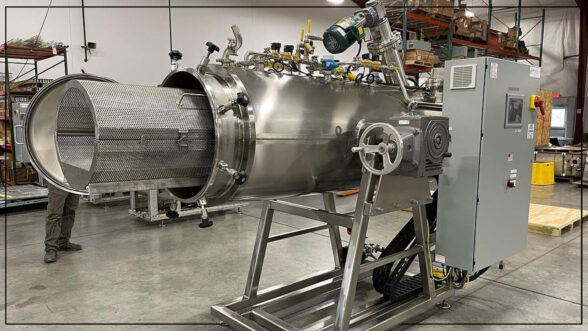ECO-FRIENDLY AFTERLIFE
The latest in green burial trends
As Cassandra discussed in our Sustainability Report, 83% of Gen Z – and a whopping 90% of Trendsetters – believe in climate change; this is the ONE issue – out of all the many, many issues that Gen Z are deeply concerned about and feel obligated to address. In fact, action-oriented Gen Z expects climate change to impact every single aspect of their lives, from what they wear, what they eat, and even their final resting place wishes to reflect their eco-friendly lifestyle. Traditional burial or cremation—both pose major environmental hazards by polluting the ground and emitting carbon dioxide, so although making these decisions can be an emotionally stressful experience, what are our options? Ahead, we explore the alternatives.

MUSHROOM COFFINS
Even though “eaten by mushrooms” may not be exactly how we picture going out, a Dutch company applies this idea to human burial with its Living Cocoon, a person-sized box made entirely of tough fungal fibers called mycelium. When it’s buried, the moisture in the soil activates the fibers, and the fungi begin to grow, where eventually, the body will be consumed, and the surrounding soil will be enriched.

WATER CREMATION
On average, one cremation creates an average of 534 pounds of carbon dioxide. Toxins from embalming fluid and nonorganic implants like tooth fillings also go up in smoke. Water cremation—also known as aquamation or alkaline hydrolysis—produces the same result with significantly less environmental impact and, for some, a spiritual benefit. The Water cremation machines work by pumping a heated alkaline fluid around a body, exponentially accelerating the natural decomposition process. The only byproduct is nontoxic, sterile water, and there are no toxic emissions into the ground or air.

RECOMPOSITION
Recomposition, or body composting, is the process of converting human bodies into soil using natural means. The body is placed in a container with a mixture of wood chips, straw, and other organic materials that are then exposed to heat and oxygen to accelerate decomposition. For those who want to return to Mother Earth in this way, body composting is currently legal in only six states. However, more states are considering legalizing the process as body composting gains popularity.